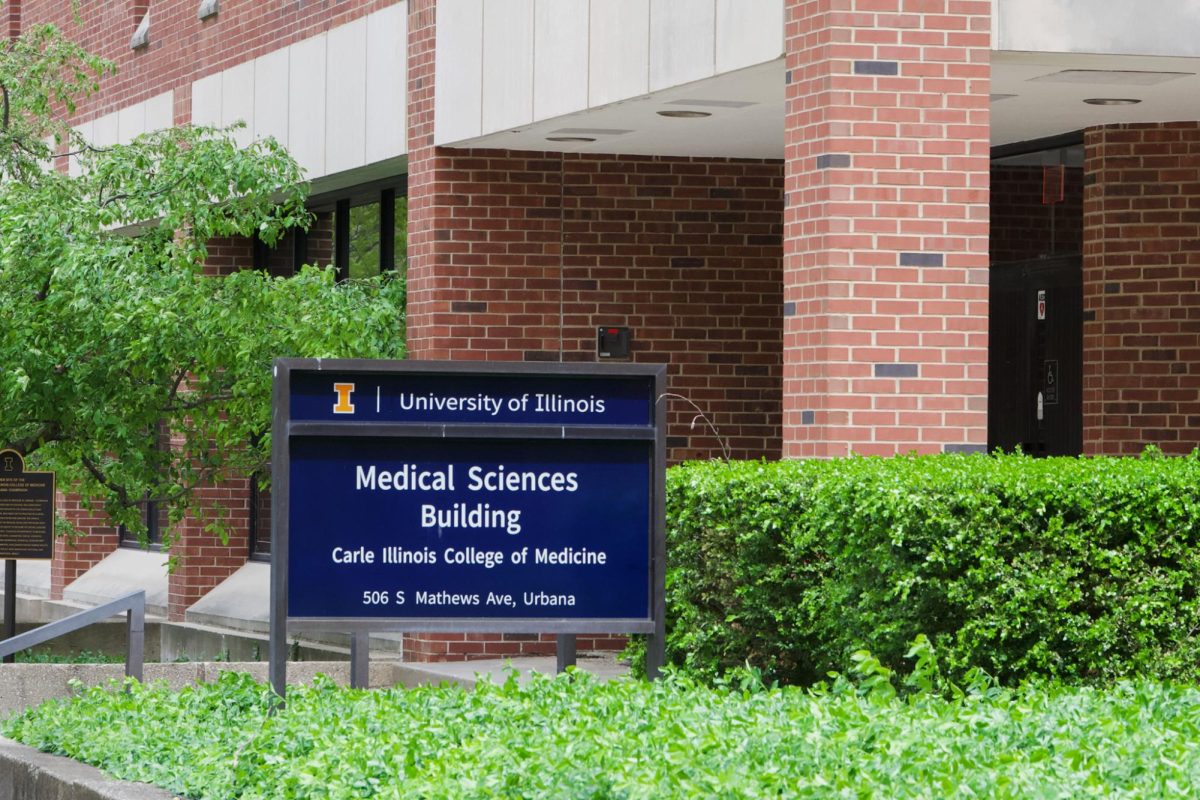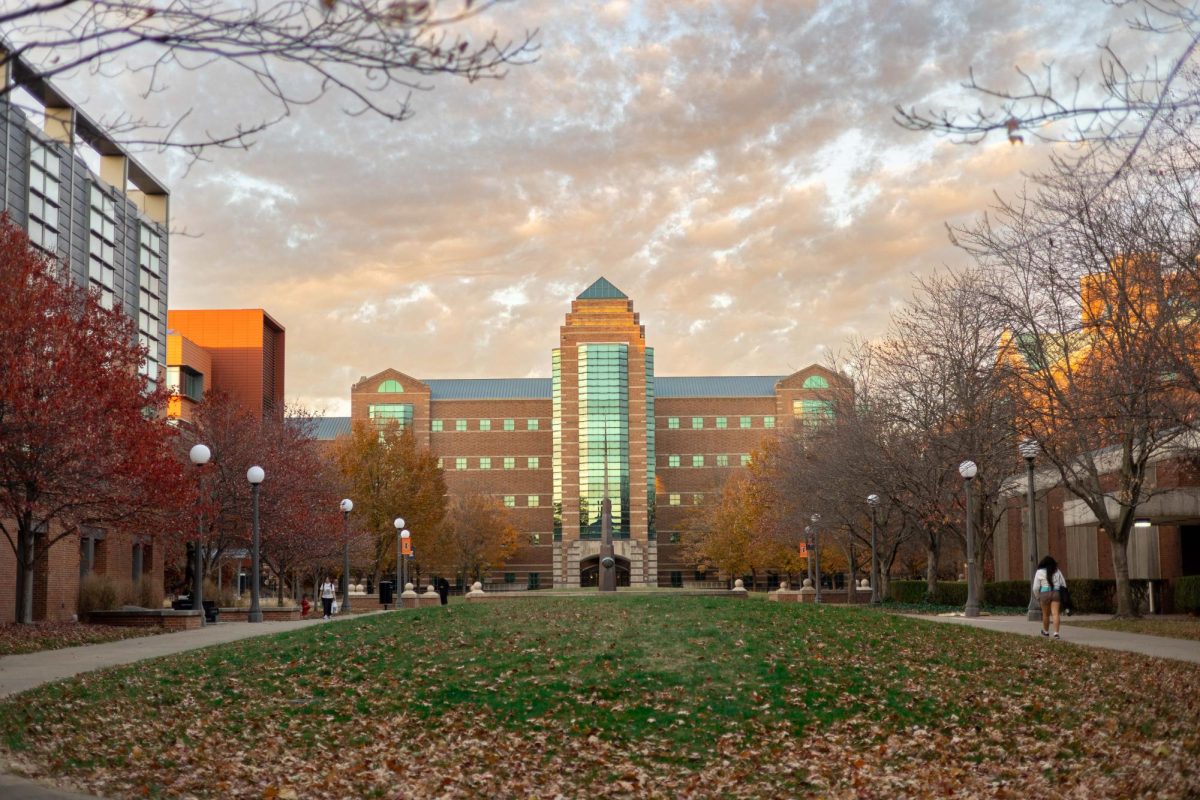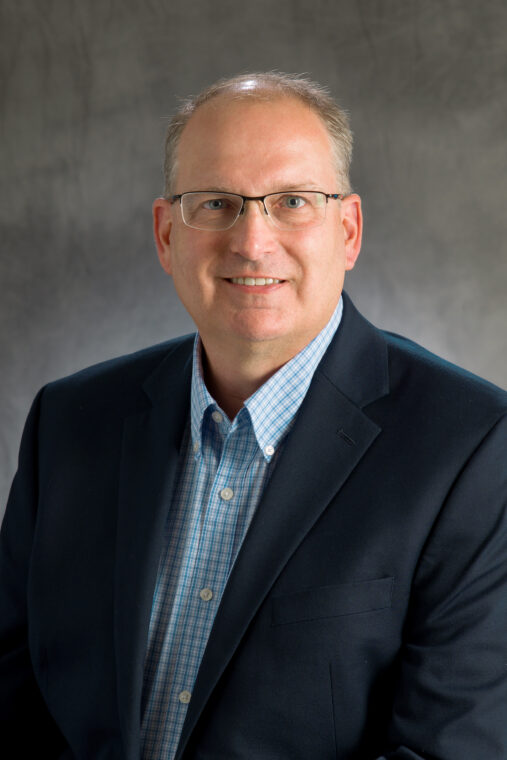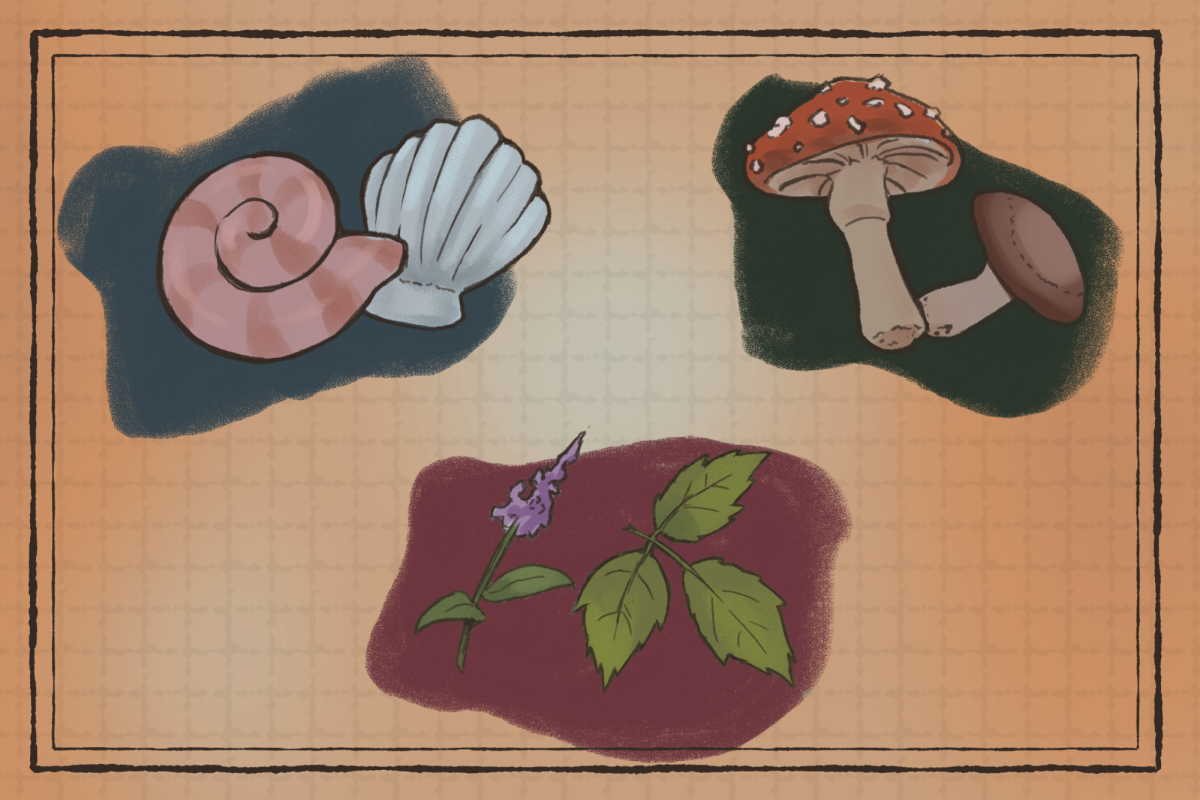Al Smith, medical student at the Carle Illinois College of Medicine, has received a fellowship to continue developing a neurosurgical navigation device that can make treating traumatic brain injury more accurate.
Smith received the Ruth L. Kirschstein National Research Service Award Individual Fellowship from the National Institute of Health. The NRSA fellowship gives predoctoral dual-degree students $240,000 to help integrate their findings into clinical settings.
Smith’s image-guided surgical device assists in “external ventricular drain placement,” a procedure that relieves fluid buildup in the brain. The buildup is usually due to pressure caused by acute injuries such as a traumatic brain injury.
The device creates a better visualization of the image of the brain to make a surgeon’s job less tedious during an emergency.
“A neurosurgeon will typically look at a medical image on a 2D monitor or something like that, and then based on what they see, they will decide and plan their procedure that they will perform without any sort of visualization assistance,” Smith said. “They’ll just use their anatomical knowledge to place a drain.”
Get The Daily Illini in your inbox!
The initial concept for this device, as well as gaps in international care, were featured in the Journal of Neurosurgery in a 2022 paper written by Smith in collaboration with Carle neurosurgeon Wael Mostafa.
Failing to place the drain properly can result in severe impacts on a patient, such as hemorrhages, comas and even death if the fluid from the brain is not drained correctly. The neurosurgical navigation technique has been shown to improve the accuracy of drain placement over standard procedures.
“There’s a lot of literature about the accuracy of this procedure being much lower than what you’d expect a surgical accuracy to be for a neurosurgical procedure,” Smith said. “The literature reports anywhere between 40% to 70% accuracy in a single pass placement of an external ventricular drain using this freehand approach, but neurosurgical navigation can bring up the accuracy to 95% or higher.”
The device got promising feedback from neurosurgeons worldwide.
“I went to the World Federation of Neurosurgery conference in South Africa last year and received feedback from several surgeons from rural settings who said that they feel very helpless in treating these cases,” Smith said. “They believed that if they were able to use a device for this, they would have a much higher likelihood of better patient outcomes.”
About plans for the project, Smith said he is currently facing limitations on the trials he and his team may perform.
“This grant does not cover in-human studies, so we can’t actually perform the procedure on live subjects under this funding mechanism — it’s for preclinical only,” Smith said. “We do have a human subjects study approved for this study, but that is focused more on the care provider’s ability to use the technology rather than testing on patients.”
Since the device has not been implemented in a clinical setting, Smith plans to distribute it. He intends to patent the current design and improve the technology to make it suitable for clinical use, where he’ll first issue it locally, then globally.
“My goal is to start a company and go down the commercialization route with this technology,” Smith said. “That would involve going through the FDA and regulatory bodies and things like that and then start deploying it in kind of the rural settings in the U.S. initially to evaluate whether or not it can improve outcomes on a broad scale once it’s deployed.”
Smith is now pursuing the Small Business Innovation Research and Small Business Technology Transfer grants pathway, a program intended for small businesses to fund a clinical trial and further advance this project.
Aside from Mostafa, other faculty at the College of Medicine were also supportive of Smith’s effort in getting his project started.
“I’ve been able to work with two other neurosurgeons, Dr. Suguna Pappu and Dr. Paul Arnold, and they have all been tremendously supportive and helpful in pursuing this project,” Smith said.









